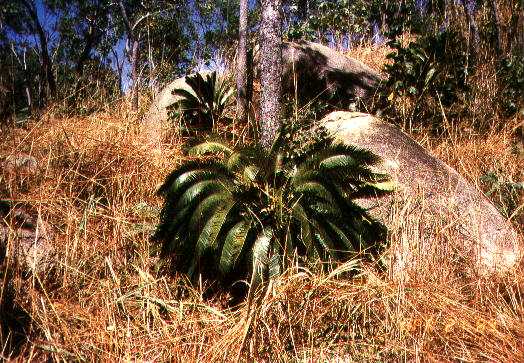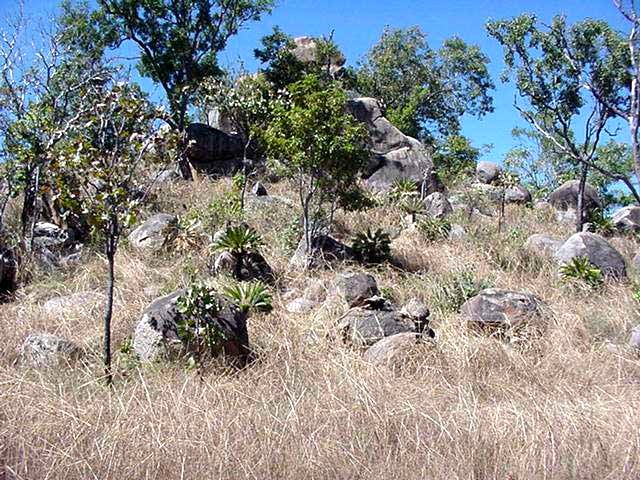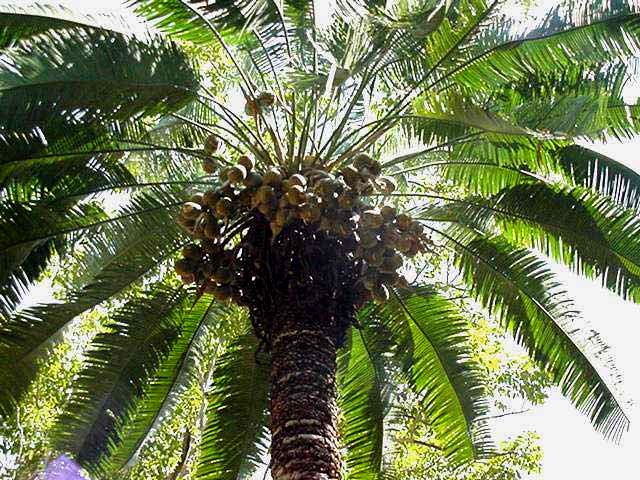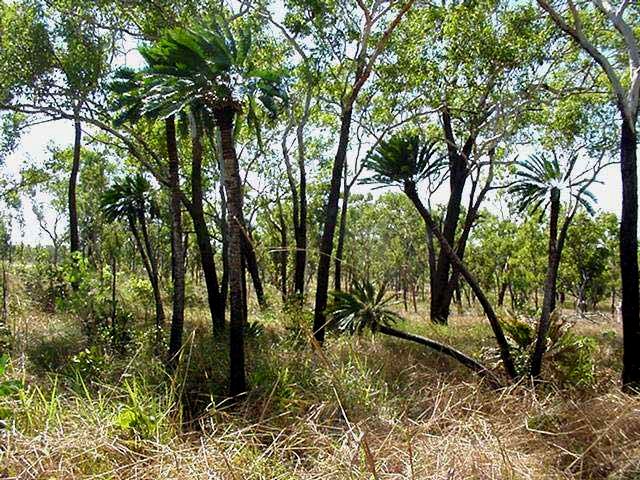Cycas conferta: Difference between revisions
From PACSOA Wiki
P>Pacsoa No edit summary |
m (1 revision imported) |
(No difference)
| |
Latest revision as of 13:53, 26 September 2024
| Welcome to the PACSOA Palms and Cycads wiki!
If you have any information about this species, please help by updating this article. Once you are registered you can contribute, change, or correct the text, and even add photos on this page. Click on the edit tab above and play around. Any mistake can be easily corrected, so don't be afraid. |
Not very much is as yet known about this unique and isolated species since J.R. Maconochie's untimely death a few years ago, the only information coming out of the various habitats was from seed collectors and people associated with the landscape industry.
Cycas conferta grows in small populations around the Pine Creek area, north of Katherine, growing on granite outcrops and close to creek systems It is a horticulturalist's dream. Sharon Chirgwin says the fronds are a beautiful sea-green and have an abundance of soft crowned pinnae. The ovules are pear-shaped and turn brownish purple when ripe. Further to this is a report from a data sheet sent to me by Monty Anderson of Darwin.
... the species known as 'Pine Creek' species. North-east of Pine Greek near creek localities and wooded hillsides, a species not previously described which is also growing among rocky granite outcrops. Approximate rainfall lO00mm per annum. The average height of caudices observed 1.25m and the maximum height seen 4.30m. Diameter of caudices measured 0.13 m.
Some were branching and others were suckering. The colour of all leaf fronds was blue-green on both surfaces, but a little more so above, inclined to be duller beneath. Pinnae opposite and alternate, generally overlapping; this was more so in the top two-thirds of the frond. Light brown tomentum on crown of plants. Number of fronds was between 40 and 60.
Contributed by:[edit]
Gary Beaumont
Len Butt
External Links:[edit]
World List, IUCN, JSTOR, Trebrown





